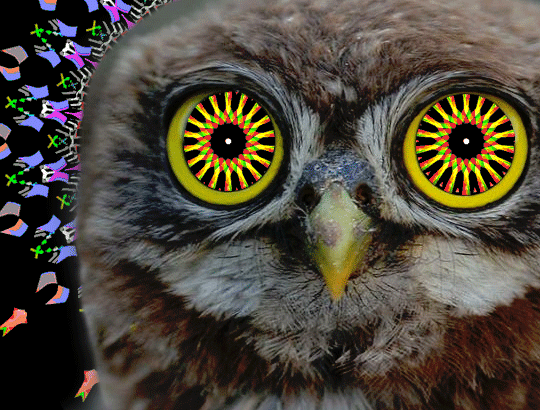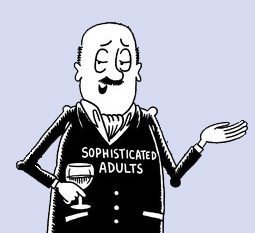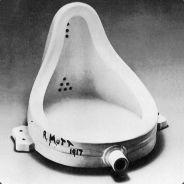This is what people used to think bees were lmao.
It is wild how we could function as a species while being completely wrong about everything throughout time.
Gotta love that Ol' Spontaneous Generation theory they used to have
Just like how they thought salamanders were born from burning wood
Flies, birds, and bees are all just the same thing, which capitalists have renamed and rebranded endlessly to maximize product sales.
It's a bible thing, they were deeply religious in those days and the bible said anything with wings was a bird. At least I think so? I know it called bats birds.
Wasn't that a common language thing before an actual taxonomy was developed? Like the word for creatures that fly was "bird," the word for things that live in the water and swim was "fish," etc? Like differentiating birds and bats requires a framework for understanding that one warm-blooded flying creature is more related to mice, dogs, people, etc (and understanding that all of these things are related) than to these other warm-blooded flying creatures that have no extant relatives that are wildly different from them, differentiating whales or dolphins from fish requires understanding that they breathe air and are related to non-bird warm-blooded land animals, etc.
Yeah the bible has pretty wonky classifications for animals
i guess they let just anyone be an artist in those days huh. i could definitely draw a better bee than that
These people didn’t have the benefit of seeing The Bee Movie for reference though.
It's hard to tell how much is just the artist sucked at drawing and how much is symbolic; eg, you're drawing an elephant and trying to say it makes a trumpet noise so you draw the snout as a trumpet.
Being a medieval scholar must have been so cool. All of these whimsical creatures springing forth from things with their king and strange society.
Very interesting to see the ideology of their time influencing their assumptioms
"Bees choose the most noble among them as king" is such an incredible statement
spontaneous generation fucking rules and bees are definitely birds
They were already opening beehives where you can see the bee worms. They could trap the oxen worms and either grow them out or compare the two. Where did that belief come from and why did that group believe something so easily disprovable?
Some dude say fly larva in a carcass, saw flies around the carcass, and assumed bees are just flies.
But then what's your next assumption? This is the only source of sugar apart from fruit, I'd be stung to death if I collected a wild colony, what if I just put these maggots in a box until they become bees and then I'll have lots of honey without going through all the trouble of suiting up and smoking them out.
The peoole writing this shit arent agricultural workers, theyre basically medieval shitposters. Got a wild speculation? Dont waste your time investigating it, just put it to print!
Mendel was a monk for a reason. It's a job that puts you in close contact with nature but in a more comfortable position than a farmer so you have the time to think about things. A lot of monasteries kept bees for extra income and were the scriptoriums producing stuff like this. Of all the agricultural knowledge that seems like it would be accurate in that era, you'd think it would be stuff they're in such close proximity to.
also, what kind of man keeps boxes with slugs and worms and creepy crawlies in them in some intentional manner that feels, to me an authority figure, ritualistic?
A WARLOCK in league with THE DEVIL.
burn him! take all his shit and turn his family out into the streets!
This was back when Europe believed in the Greek scientific system which worked by making an assumption and then taking it as true. The idea of actually testing things was introduced later
Be me, mr. dumb
Only literate guy in the village who can afford vellum because I'm extra Christian
the wise man bowed his head solemnly and spoke: "theres actually zero difference between bee worms and cow worms. you imbeciles. you fucking morons"
You’re thinking retrospectively, knowing some level of the scientific method.
Even if they didn't have the same methodology, they still experimented in informal ways and kept bees as a business. If you told me today that I could make bees with rotten meat and I didn't know better, it would seem like a free money printer because I can put roadkill in a box and harvest honey/royal jelly/beeswax that's still valuable today even without it being a primary sweetner/preservative/light. They were surrounded by dead animals and everything bees produce is super valuable to them both practically and economically. If seeking the path of least resistance got us all of our tools until that point, intuitive experimentation was at least powerful enough to understand things like hydrodynamics and stone construction. Yet for X centuries people either kept putting rotten meat in boxes and being disappointed without thinking about it or they thought this worked but nobody made a workshop that recycled inedible ox parts into bees. You're otherwise facing the risk of climbing a tree to collect a wild hive or setting up the wooden hive and hoping a displaced colony finds it by winter, while your era's equivalent of scientific understanding says you can just put stew scraps in a box and wait until the maggots transform.
See, you're forgetting that a large part of the literate and high clergy of the time were just some aristocrat's inbred failsons. They're not sending their best, folks.
It's annoying to test things though and if you don't you can take a long lunch
"Animals and plants come into being in earth and in liquid because there is water in earth, and air in water, and in all air is vital heat so that in a sense all things are full of soul. Therefore living things form quickly whenever this air and vital heat are enclosed in anything. When they are so enclosed, the corporeal liquids being heated, there arises as it were a frothy bubble." Aristotle.
Aristotle said some animals just get spontaneously generated so nobody else questioned it until the Rennaisance and Redi proved flies don't just form spontaneously from rotten meat. I can get some people thinking stuff just spontaneously generated, like, trees growing don't actually absorb much soil from seedling to tree (most of the tree is made from CO2) so I guess they figured it just made sense.
You'd think for such an important idea, not just conceptually but practically since the beekeepers would need to reproduce colonies, someone would test that centuries before the renaissance. They had sealed boxes and they could otherwise scoop maggots into a fresh hive to make their apiary more productive. Real emperor has no clothes energy.
The people doing the writing and the people doing the beekeeping probably didn't talk much, lol. You ever read some of the medieval travel guides? Apparently these guys lived in Ethiopia and Asia.
Although, there were monks and monastaries that made mead from fermented honey so maybe there are some written accounts that have a more empirical first-hand knowledge basis.
https://upload.wikimedia.org/wikipedia/commons/d/d9/Hereford_Mappa_Mundi_Detail_Africa-eyes-on-shoulders.jpg
feels good man
well assuming this is a trustworthy source, i would ask you to define "they"
I mean, some people still believe the world is flat.
Religious extremeism is a hell of a drug.
I would be curious as to what their source is for this "bestiary". People have been doing beekeeping since prehistory, and presumably those motherfuckers knew that the bees weren't being born from oxen or whatever.
I could believe that something like this might have been written by a monk who never ventured outside, however.
There are sources on the full page and yes it's monks because I think they were one of the few that were taught literacy? (correct me if I'm wrong)
Also how funny would it be if the monk went and asked farmers how bees worked and the farmers told him this as a joke?
Medieval/renaissance naturalists come into the room.
Claim bees are birds and capybaras are fish.
Don't elaborate.
Leave.
:gigachad:
Bees can't be birds, because I know bees are real, but birds aren't real.
This was before Reagan killed them all and turned them into spies
of the flying birds, it's the pig i love the most
for they fly low and spread large
Ducks and other waterfowl were considered fish for the sake of no meat on Fridays











